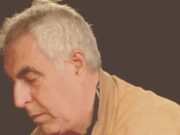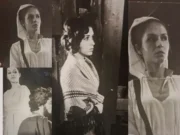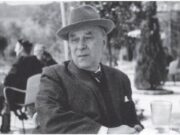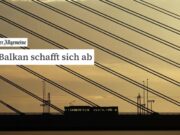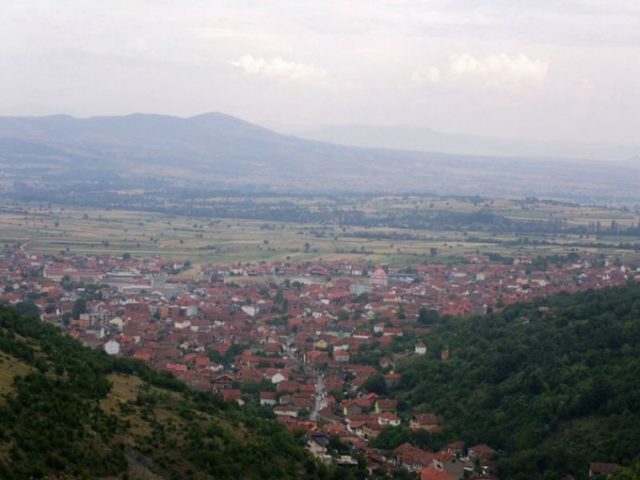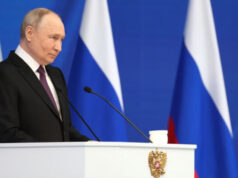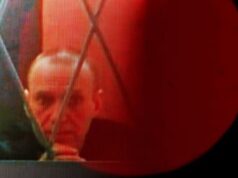Elections for seats on the Albanian National Council, which represents the ethnic community’s educational and cultural interests in Serbia, have inspired little hope or optimism in impoverished areas of the country’s south.
There are about 40,000 ethnic Albanians in Serbia who are eligible to vote in the elections on Sunday for seats on the Albanian National Council, ANC, but observers and potential voters agree that there is little enthusiasm for the polls among the people of Bujanovac, Presevo, and Medvedja, the three municipalities at the country’s southern border with Kosovo and Macedonia where many Albanians live.
“That is because in their campaigns, the politicians are not promising citizens jobs in municipal institutions or to sort out the infrastructure, because this is not in the jurisdiction of national councils,” said Arber Pajaziti, the Alternative for Change party’s ANC presidential candidate.
Valjon Arifi, a civic activist from Presevo, thinks that since 2010, when first elections for the ANC were held, the council has done very little for the ethnic Albanian community in Serbia.
“It’s pitiful that the ANC, one of the most important institutions for the rights of Albanians in Serbia, is greatly influenced by [political] parties and politicians. Up to now, they have done practically nothing for citizens, which explains the lack of interest in these elections, especially among the youth,” Arifi told BIRN.
There are a total of 20 ‘national councils’ that represent Serbia’s various ethnic minorities, like the ethnic Albanians’ ANC, but according to the law, they are only responsible for education, culture, information and the official use of language, alphabet and national symbols – not economic matters.
Arifi meanwhile argued that the ANC has lacked any coherent strategy so far, which is why ethnic Albanian children still have to study in poor conditions at school, don’t have books in their mother tongue, and are not completely integrated into state institutions.
“This situation will continue because in the campaign up to now, no party has put forward specific ideas about how the ANC will solve the accumulated problems of Albanians, but their campaigns boil down to trashing each other and collecting political points,” he claimed.
Nedzat Behljulji, the owner of Bujanovac-based, Albanian-language channel TV Spektri, also believes that the reasons for the lack of motivation among potential ANC voters is because the council hasn’t achieved much since it was founded eight years ago.
“The issue of using the Albanian national minority’s flag has still not been resolved, or the official use of the language and alphabet and textbooks in the mother tongue. Apart from that, no cultural institution in Albanian has been founded, like a theatre for example,” Behljulji said.
He pointed out that in the last elections for the ANC, just over 15,000 ethnic Albanians voted, and a similarly poor turn-out is expected this weekend too.
Six electoral lists are competing in Sunday’s ballot for the 15 seats on the ANC – Alternative for Change, the Democratic Party, the Party for Democratic Action, the Reforms Movement, the Democratic Albanians Party and the Albanian Forum for Economic Development in Serbia association.
View on Preševo. Photo: Wikipedia/Planeti – GFDL-user-sq
At first glance, there are two surprises. Firstly, the Democratic Progress Movement formerly led by Jonuz Musli is not on the list. Musli was the president of the ANC up to his death in January 2018. The Democratic Progress Movement party said it did not manage to prepare for the elections after the death of its leader.
A potential surprise candidate could be Muharem Saljihu from Medvedja, who has been building a successful business career in Italy over the past few decades.
Saljihu told BIRN that his motive for running is the desire to help the region of his birth so that all ethnic communities in the south of Serbia can start live better.
“The ANC has up to now been a bad copy of political parties and I want to change that,” said Saljihu, who opened a sock factory in Medvedja and hired 200 workers.
According to local analysts, no single list will be able to win an absolute majority of eight seats on its own, and thus get the right to elect the ANC’s president.
Analysts also suggested that the keenest struggle for power on the ANC will take place between the two lists spearheaded by the mayors of Bujanovac and Presevo – Shaip Kamberi, leader of the Party for Democratic Action, PDA, and Shqiprim Arifi, leader of the Alternative for Change, AFC.
“The PDA is the oldest party bringing together Albanians, and it has committees and voters in all three municipalities. On the other hand, the AFC is a party which stripped the PDA of its primacy at last year’s local elections in Presevo, and its electorate mostly consists of young people who are eager for changes,” said Behljulji.
The impoverished south of Serbia is still recovering from an armed conflict between state security forces and the rebel Albanians of the Liberation Army of Presevo, Medvedja and Bujanovac, which lasted from late 2000 to June 2001.
Since then, ethnic Albanians have been dissatisfied with their situation in Serbia, so their leaders are united in the desire for the Bujanovac, Presevo and Medvedja municipalities to become part of Kosovo.
The hope that this could happen was intensified in recent months when political leaders in Belgrade and Pristina started mulling the idea of border changes as part of a deal to normalise relations.
But local Albanian political leaders have recently “dropped the talk” about joining Kosovo, Behljulji claimed.
“They turned to the National Council elections because that’s where the money and power are,” he insisted.
The ANC gets about 100,000 euros a year from the Serbian state budget for the activities and salaries of its employees. It can also raise money by applying for funding for projects to state institutions and ministries both in Serbia and Albania, and to international donors.
“There are three main reasons behind political parties’ great interest in power on the ANC. These are money, political influence and the verification of trust with voters for the local elections, which are to take place in a year and a half,” Behljulji said./BIRN

